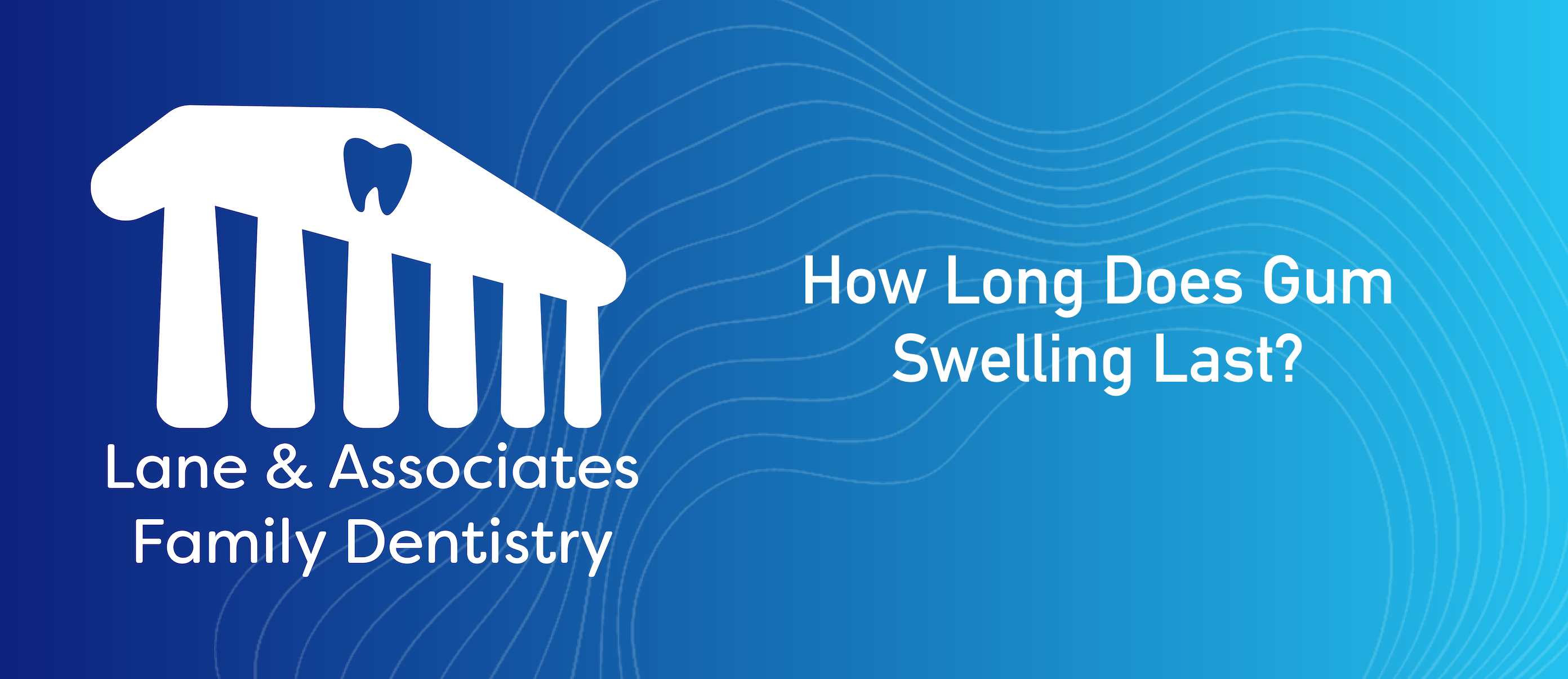Facing the discomfort of swollen gums can be both painful and worrying, raising questions about the severity and duration of the condition. Gum swelling, a prevalent dental issue, can stem from various causes, ranging from simple irritation to complex periodontal diseases. This blog delves into the critical aspects of gum swelling, exploring its duration, self-resolution possibilities, effective home remedies, and the connection between swelling and infections. It also addresses the need for antibiotics in certain situations, providing a comprehensive guide to understanding and managing this common oral health concern.
How Long Does Gum Swelling Last?
Gum swelling is a common issue in dental health that can last for different lengths of time, causing discomfort and concern. The duration of gum swelling varies based on factors such as the root cause, how well the treatment works, and the individual’s overall health. Typically, gum swelling caused by minor irritations or injuries might decrease within a few days with good oral hygiene. However, if the swelling stems from more serious conditions like periodontal disease, it may persist for a longer time and require attention from a dental professional.

Immediate and consistent oral care can greatly shorten the healing process. If gum swelling continues for more than a week, it’s crucial to visit a dentist to determine the cause of the problem and prevent more severe dental conditions.
Maintaining daily oral hygiene practices is essential to prevent gum swelling and to accelerate recovery when it occurs. If the swelling does not improve or worsens over time, consulting with a dentist is imperative. Dental professionals can offer the appropriate treatment and advice to manage the condition effectively and prevent future occurrences of gum swelling.
Will a Swollen Gum Go Away on Its Own?
Will a swollen gum heal by itself? This question often arises when facing gum discomfort. Swollen gums may indicate a range of oral health conditions, from mild irritation to severe periodontal diseases. Sometimes, when the swelling is slight and due to reasons like food remnants trapped between teeth, it might go away with proper dental care like brushing and flossing thoroughly. However, maintaining good oral hygiene is essential to prevent the situation from getting worse. Ignoring swollen gums can escalate into more serious dental issues, requiring professional intervention.
- Minor gum swelling can heal on its own with good oral hygiene practices
- Overlooking ongoing gum swelling can cause significant dental health problems
In certain cases, mild gum swelling might reduce without specific medical treatment, but continuous observation and dental care are vital to preserve oral health. Regular and effective oral hygiene can prevent the initial cause of swelling and aid in the natural healing process. If the gum swelling is due to more benign causes, such as slight food blockage or temporary irritation, it can resolve with diligent care.

However, if swollen gums are left untreated and the condition persists, it could lead to advanced dental problems that would need professional dental care. Therefore, it’s important to not disregard prolonged gum swelling. Regular dental check-ups and proper oral hygiene can prevent minor issues from developing into major health concerns. Dental professionals can offer guidance and treatment to manage gum swelling effectively and ensure overall oral health.
How do I Make my Swollen Gums Go Down?
Reducing swollen gums involves a combination of home care and possibly professional dental treatment, depending on the severity of the swelling. To help alleviate the swelling at home, practicing good oral hygiene is essential. This includes brushing your teeth twice a day with fluoride toothpaste and using a soft-bristled toothbrush to avoid further irritation of the gums. Flossing daily helps remove food particles and plaque from between the teeth and along the gum line, which can reduce swelling.
Using an antiseptic mouthwash can also help decrease gum swelling. Mouthwashes designed to fight gingivitis and gum disease can soothe inflamed gums and kill bacteria that cause swelling. Rinsing with a warm saltwater solution can provide temporary relief by drawing out infection and reducing inflammation.
If your gums are swollen due to an accumulation of plaque, a professional dental cleaning can remove these irritants and help reduce the swelling. In cases where swollen gums are caused by a more serious condition like periodontal disease, your dentist may recommend additional treatments, such as scaling and root planing, to thoroughly clean below the gum line.
Does Swollen Gums Mean Infection?
Swollen gums can often indicate an infection, but not always. Gum swelling is a common symptom in various oral health conditions, ranging from mild irritation to severe infections like periodontal disease. When gums are swollen, it suggests that there is an inflammatory response happening, which could be due to the body fighting off bacteria or an injury.
Infections in the mouth, such as gingivitis or periodontal disease, are major causes of gum swelling. Gingivitis is the early stage of gum disease where the gums become red, swollen, and can easily bleed. If untreated, it can progress to periodontal disease, a more serious infection affecting the gums and the bones that support the teeth, leading to more significant swelling, pain, and even tooth loss.
To determine if swollen gums are due to an infection, look for other symptoms like persistent bad breath, pus around the teeth and gums, bleeding during brushing or flossing, and a bad taste in the mouth. These signs, combined with swelling, strongly suggest an infection that requires dental evaluation and treatment.
Do I need Antibiotics for Swollen Gums?
Determining whether you need antibiotics for swollen gums depends on the underlying cause of the swelling. Antibiotics are used to treat bacterial infections, so if your gum swelling is due to a bacterial infection, such as periodontal disease, your dentist might prescribe antibiotics to help eliminate the infection and reduce the swelling.

However, not all cases of swollen gums are caused by bacterial infections. For example, if the swelling is due to gum irritation from food getting stuck, poor brushing habits, or a mild reaction to a new toothpaste, then improving oral hygiene and addressing the source of irritation may resolve the issue without the need for antibiotics.
If your dentist diagnoses you with a bacterial infection in your gums, they may prescribe antibiotics in the form of a mouthwash, gel, or oral tablets. This treatment is usually part of a broader dental care plan that includes professional cleaning and possibly other procedures to remove plaque and tartar, promoting healing of the gum tissue.
In cases of severe or persistent gum swelling, especially if accompanied by symptoms like pain, redness, bleeding, or pus, a dental examination is necessary to determine the cause and appropriate treatment. Regular dental check-ups can also prevent gum problems from becoming severe enough to require antibiotics.
Conclusion
In conclusion, managing swollen gums effectively requires a blend of proper oral hygiene, timely professional advice, and, in some cases, medical treatment. While minor gum swelling may resolve with diligent home care, persistent or severe cases necessitate a visit to the dentist to identify and treat the underlying cause. Whether it’s adopting better dental care practices, using specific treatments, or understanding when to seek professional help, taking proactive steps towards oral health can prevent the escalation of gum swelling into more serious conditions. Regular dental check-ups and maintaining good oral hygiene are paramount in keeping your gums healthy and preventing future dental issues.


